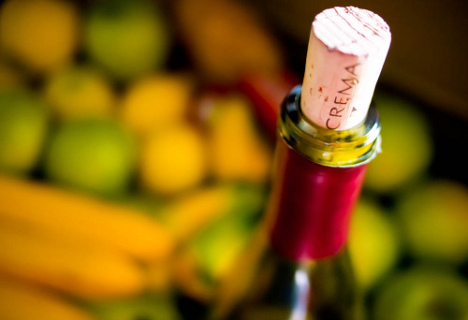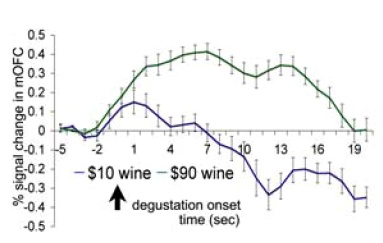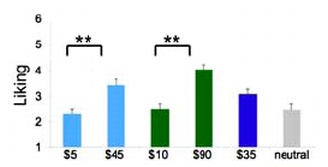I don't think that a study can prove or disprove this. You can find out if there is a difference in taste (but a spectrometer should be able to prove the same).
The trouble when judgment is solely based on sensory inputs (such as in, "Which wine tastes better?") is that there are two strong biases present. The one is called mere exposure effect.
The mere exposure effect is a psychological phenomenon by which people tend to
develop a preference for things or people that are more familiar to them than others.
Repeated exposure increases familiarity.
I don't have any data for whether the majority of the population drinks cheap wine more often than expensive wine, but I think that it is reasonable to assume this. If the study represents the general population well, the results will be skewed towards the cheaper wines because of the mere exposure effect. This doesn't mean that cheaper wines really taste better. It is possible that the same population would have rated the wines in another way if it had been exposed to a different wine mix over the years.
I haven't seen a name for the second bias, but have observed it often, and there are several trends in our society which are based on it. It is probably best explained with sight. It is the fact that the less trained a person is to use a sense, the more likely they are to value very strong input impulses positive, while ignoring the weaker ones. This is the reason why small children instinctively prefer brightly colored objects. In adults, it can be observed in photography. Laymen are always very impressed by overdone HDR pictures, while photographers find these uninteresting and rate higher pictures which have a big amount of very subtle details. Similarly oversaturation: good photographs have the same saturation as the original scene, great photographs can be styled in a personal way which often includes a special level of saturation. But the brain always prefers the more saturated pictures. Not only are they perceived best by the people who don't know what saturation is, every photographer has ltaken a sober look at the results of yesterday's postproduction to detect that he pushed the slider way too high, because when you are on the slider, comparing two variants side-by-side, the more saturated one always appeals more.
In music, this phenomenon is also well known: it is the reason why there are catchy tunes. Have you ever noticed how simple catchy tunes are? It is also the reason why pop music sells much better than classical music, although classical music or involved music from other styles is considered higher quality by musical experts.
So I'd say that the cheap wines are the gustatory equivalent of a catchy tune: they are liked on the first sip, especially by non-experts, because of their assertive simplicity. And the more we drink them, the more we like them. This explains the negative correlation in the studies cited, too. On the other hand, the experts have been trained/have trained themselves concentrate more on taste. Then the overly strong stimuli seem too harsh, and the subtle details are missing from the picture, leading the experts to hate wines which the general public finds perfectly drinkable. As they are willing to pay more per unit of wine, better wines easily sell at higher prices.
This wasn't an argument to say that wines which cost more will always taste better to you, or even to an expert. It is not so much a case of "you get what you pay for", as a case of "you don't get what you don't pay for". The traditional manufacturing of wines involves very complex chemical reactions, which need lots of time. High production time is always associated with high production cost. Quickly manufactured wine takes lots of shortcuts, which don't produce such a variety of complex flavors (see McGee on food and cooking for an in-depth explanation). So it is economical suicide for the winery to sell complex wines at a low price. On the other hand, a winery selling non-complex wine at a high price is perfectly possible, and it won't be counteracted by the market's invisible hand, because neither taste prefereneces nor the willingness to pay correlate too well with wine complexity (or, for that matter, with each other), and, to a smaller degree, because of market imperfections like asymmetrical information.
So there isn't a price correspondence even for something objective like the chemical complexity of the wine. And because you are probably more interested in whether you can expect more expensive wine to taste better, you must accept an even weaker (or even negative) correlation.



